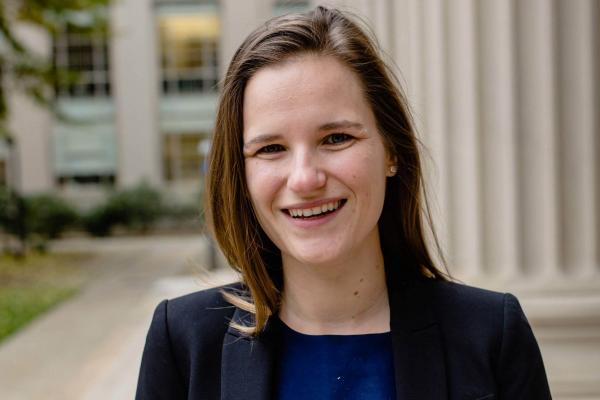The Department of Economics is delighted to welcome Prof. Tamar Oostrom

I am thrilled to join the Department of Economics as an assistant professor this fall. My areas of specialization are health economics and public economics. In general, my research focuses on the role of public policy and innovation in health care markets.
In recent work, I estimate the effect of financial incentives on reported drug efficacy in pharmaceutical research. My key insight is that the exact same sets of drugs are often compared in different randomized control trials conducted by parties with different financial interests. I find that a drug appears much more effective when the trial is sponsored by that drug's manufacturer, compared with the same drug in the same trial without the drug manufacturer's involvement. This result is not driven by observable characteristics of trial design and patient enrollment. Instead, I find that this effect is mostly due to publication bias: papers funded by that drug’s manufacturer with negative results are more likely to remain unpublished. I also find that the effect of funding on reported drug efficacy has decreased in recent years as pre-registration requirements have been implemented.
My research also studies the selection of patients who comply with health recommendations. In the context of recommendations that breast cancer screening start at age 40, we document that compliers with the age 40 recommendation are less likely to have cancer than women who self-selected into screening at earlier ages. Combining these patterns with a clinical oncology model allows us to infer that responders to the age 40 recommendation also have less cancer than women who never screen. This selection suggests that the benefits of recommending early screening are smaller than if responders were randomly selected among all covered individuals. Our results highlight the importance of considering the characteristics of responders when making and designing recommendations.
Future work includes the role of religion and community in preventing drug overdose mortality, and the selection of patients in clinical trials. My research has been published in Health Affairs and is forthcoming in the American Economic Review. I have also received funding from the National Science Foundation and the National Institute on Aging.
I earned my PhD in economics from the Massachusetts Institute of Technology in 2020 and a B.S. in both mathematics and biochemistry summa cum laude from Washington and Lee University in 2013. In between, I spent two years as a research assistant at the National Bureau of Economic Research. Besides economic research, some fun things I like to do with my time include reading fiction, acquiring houseplants, and being overly competitive with board games.
I am very excited to begin my career at The Ohio State University. I forward to both teaching and learning from my fellow Buckeyes, beginning with undergraduate health economics (Course 5860) this spring.
